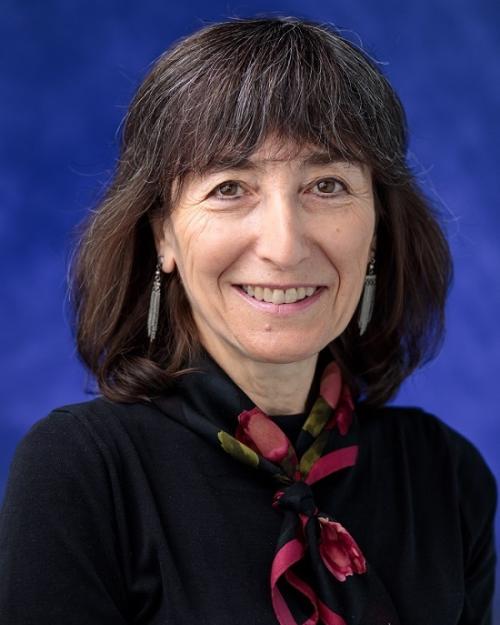The current rate of the expansion of space – called the Hubble constant – is a measure of the age and size of the universe. But recently, a new debate has emerged about the Hubble constant, potentially calling into question the standard model of cosmology.
“For the past 20 years, astronomers have observed the entire universe to be expanding at an increasing rate, pulled apart by a cosmic force, unexplained by any current physical theories,” said astrophysicist Wendy L. Freedman. “Could there be more exotic physics yet to be uncovered?”
In the spring 2023 Bethe Lecture, Freedman will describe the current state of cosmology and her work with the Hubble Space Telescope that has led to some of the most precise measurements of the Hubble constant made to date. She will also present some new data from the recently launched James Webb Space Telescope that promises to resolve many of the issues currently confronting these measurements.
Freedman’s talk, “How Fast is the Universe Expanding?” is Wednesday, March 22 at 7:30 p.m. in Schwartz Auditorium, Rockefeller Hall, and is open to the public. The lecture will also be livestreamed by Cornell Video.
“Wendy Freedman’s work sheds light on a mystery that is critical to how we understand the expansion of our universe,” said Abigail Crites, assistant professor of physics and the Fred Young Faculty Fellow in the College of Arts and Sciences. “Her work on large telescopes has also provided the infrastructure needed for big future discoveries.”
As the John and Marion Sullivan University Professor of Astronomy and Astrophysics and the College at the University of Chicago, Freedman’s main research interests are in observational cosmology. She was a principal investigator for a team of thirty astronomers who carried out the Hubble Key Project to measure the current expansion rate of the Universe. Presently her research interests are directed at measuring both the current and past expansion rate of the universe. She is a principal investigator of a program with the James Webb Space Telescope to measure the Hubble constant to percent-level precision.
Freedman received her doctorate in astronomy and astrophysics from the University of Toronto in 1984. Freedman received a Carnegie Fellowship at the Carnegie Observatories in Pasadena, California in 1984, joined the permanent staff in 1987, and was appointed the Crawford H. Greenewalt Director in 2003, serving in that role for 11 years. From 2003–2015, she served as the founding chair of the Board of Directors for the Giant Magellan Telescope, a 25-meter optical telescope scheduled for construction in Chile toward the end of the decade.
Among Freedman’s many honors, she is an elected member of the National Academy of Sciences, the American Academy of Arts and Sciences and the American Philosophical Society and an an elected Fellow of the American Academy of Arts and Sciences and American Physical Society, and a Legacy Fellow of the American Astronomical Society. Her awards include the Marc Aaronson Lectureship and Prize, the McGovern Award for her work on cosmology, and the American Philosophical Society's Magellanic Prize. She is one of three co-recipients of the 2009 Gruber Cosmology Prize and has also been awarded the Dannie Heineman Prize for Astrophysics by the American Institute of Physics and American Astronomical Society.
As part of the Hans Bethe Lecture series, Freedman will give a physics colloquium talk, “The Hubble Tension: Is There a Crisis in Cosmology?” Monday, March 20 at 4 p.m. in Schwartz Auditorium, Rockefeller Hall, and a LEPP Joint Seminar, “Measuring the Hubble Constant: Stress-Testing the Standard Cosmological Model,” Tuesday, March 21 at 4 p.m. in 700 Clark Hall.
The Hans Bethe Lecture Series, established by the Department of Physics and the College of Arts and Sciences, honors Bethe, Cornell professor of physics from 1936 until his death in 2005. Bethe won the 1967 Nobel Prize in physics for his description of the nuclear processes that power the sun.




